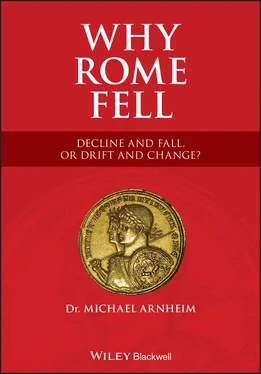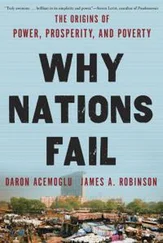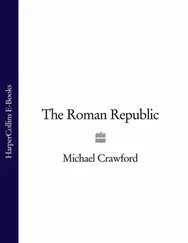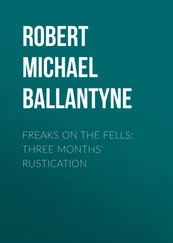Michael Arnheim - Why Rome Fell
Здесь есть возможность читать онлайн «Michael Arnheim - Why Rome Fell» — ознакомительный отрывок электронной книги совершенно бесплатно, а после прочтения отрывка купить полную версию. В некоторых случаях можно слушать аудио, скачать через торрент в формате fb2 и присутствует краткое содержание. Жанр: unrecognised, на английском языке. Описание произведения, (предисловие) а так же отзывы посетителей доступны на портале библиотеки ЛибКат.
- Название:Why Rome Fell
- Автор:
- Жанр:
- Год:неизвестен
- ISBN:нет данных
- Рейтинг книги:3 / 5. Голосов: 1
-
Избранное:Добавить в избранное
- Отзывы:
-
Ваша оценка:
- 60
- 1
- 2
- 3
- 4
- 5
Why Rome Fell: краткое содержание, описание и аннотация
Предлагаем к чтению аннотацию, описание, краткое содержание или предисловие (зависит от того, что написал сам автор книги «Why Rome Fell»). Если вы не нашли необходимую информацию о книге — напишите в комментариях, мы постараемся отыскать её.
Why Rome Fell: Decline and Fall, or Drift and Change?
Why Rome Fell
Why Rome Fell
Why Rome Fell — читать онлайн ознакомительный отрывок
Ниже представлен текст книги, разбитый по страницам. Система сохранения места последней прочитанной страницы, позволяет с удобством читать онлайн бесплатно книгу «Why Rome Fell», без необходимости каждый раз заново искать на чём Вы остановились. Поставьте закладку, и сможете в любой момент перейти на страницу, на которой закончили чтение.
Интервал:
Закладка:
As a Greek writing in Greek for a Greek readership, Polybius’s interest in Roman government is heavily influenced by the long Greek tradition of classifying constitutions in a formalistic or schematic way. That is why it is hardly coincidental that, as an adulator of Rome, Polybius should have chosen to classify its constitution as mixed, the form that Aristotle, among others, considered to be the best and stablest form of government. Polybius’s interest in the actual operation of the Roman constitution in practice was minimal.
Millar, as paraphrased by Rogers, opines that, “At the center of the practice of Roman politics was not the Roman patron ( patronus ) imposing his will upon a client, but rather the orator, addressing the crowd in the Roman forum.” See above for a discussion on patronage. But what about the idea that politics in the republic was all about orators persuading voters in debate?
Formal Rights vs. Practical Realization
“The orator addressing the crowd” : Millar’s idea that the popular assemblies were deliberative assemblies open to persuasion by rhetoric is illusory. Even the citizens of “democratic” Athens, who might have been expected to turn out enthusiastically in great numbers in anticipation of participating in their far more powerful assembly, were lackadaisical and had to be corralled by the police into attending. (See Chapter 6.)
Henrik Mouritsen provides a welcome dose of realism as a corrective to Millar’s starry-eyed view: “The fact that political proceedings are public does not in itself make them ‘democratic.’” (Mouritsen, loc 586.) And again:
“The Roman ‘democracy’ is…founded on two—themselves indisputable—historical facts: the existence of a politically significant ‘public’ and the open access of all citizens to participate in this ‘public’. These two facts do not, however, add up to a Roman ‘democracy’. One crucial factor has been left out of the equation, which is the distinction between formal rights and their practical realisation.” Mouritsen concludes that Millar’s ‘democratic’ model “sits uneasily between, on the one hand, a very practical hands-on approach to politics and, on the other, an idealistic, almost naïve view of the relationship between constitutional principle and reality.” (Mouritsen, 2008, loc 1841.)
Egon Flaig has pointed out that the popular assemblies almost always agreed with the bills presented to them, on the basis of which he denied that the assemblies were decision-making bodies, labelling them instead as “consensus-producing bodies”. (Egon Flaig 1995, 77–91; 2003, 155–74; 184–93.)
What then about the contiones (informal non-voting public meetings), which Millar saw as the place where ambitious politicians employed persuasion to prepare the ground for later voting? (Millar 2002 6, 23, 136, 142, 158–61, 181–2.) As Hölkeskamp has stressed, these speeches do not necessarily imply a situation of open decision making. Rather, it was a situation where “…senators spoke and asserted what needed to be done, the People listened and followed their advice” (Hökeskamp 1995, 27–49; 2010 88 f).
Referring to the Senate, Millar remarked that, “The notion of that body as an ‘aristocracy’ in the modern sense has confused the study of the Republic for decades.” (Millar 2002, p. 86.) It is not clear whether this remark refers only to the “early-middle- Republic” of about 390 to 218 BCE, or to later times as well. (Ibid., p. 85 f.). After consigning the Conflict of the Orders to the realm of myth and also rejecting the historicity of the Conflict of the Orders and of the “patricio-plebeian elite” that has generally been accepted as emerging after the resolution of that conflict, Millar provides us with a table purporting to show “Political Power in Mid-Republican Rome”. (Ibid., p. 99.) However, the table, which covers the period 362 to 217 BCE, contains only ten items, most of which are examples of laws proposed by tribunes of the plebs . The purpose of this table is to illustrate “…that the constitutional structure of the state, the conditions of office-holding, and the duties of office are for determination by the People via the medium of leges [laws].” (Ibid., p. 98.) So what? Modern writers on ancient history tend to be dazzled by anything that smacks of democracy and especially of “direct democracy”. (I note the same tendency in regard to Athens in Chapter 6.) It would, however, be a serious mistake to assume that we are dealing here with a genuinely deliberative assembly.
“Elective Dictatorship”
The present-day British constitution provides an apt parallel. The bedrock principle of the British constitution is the sovereignty of Parliament. Parliament, and more particularly the House of Commons, is where the debates take place, and no statute can be passed without a majority in both houses of Parliament, together with the royal assent. However, as Lord Chancellor Hailsham pointed out in his book titled The Dilemma of Democracy , the British system of government is really an “elective dictatorship,” in which a government with even a narrow majority in the House of Commons can push through nearly any legislation it likes because of the iron grip that it has over its party members through the whip system, leaving not only the voters and Queen without any say but also even Parliament itself. So, though the sovereignty of Parliament has validity as a constitutional and legal concept, in practical terms, it is a sham. (Hailsham 1979.)
“Significance of Graduated Voting Absurdly Exaggerated”
Electoral system : As for elections, it is important to realise that voting in the Comitia Centuriata , the assembly which elected the top magistrates, namely the consuls, praetors and censors, was in wealth-order, and voting stopped once a majority was reached. This assembly was reorganised in 241 BCE to make it slightly more democratic. The Comitia Tributa (Tribal Assembly), which elected the lower magistrates, was more democratic, as the “tribes” voted in a random order selected by lot. But again, voting ceased once a majority was reached. The Concilium Plebis (Council of the Plebs ) was essentially the same body as the Comitia Tributa but with the exclusion of patricians. It elected the Tribunes of the Plebs and Plebeian Aediles, according to tradition as a result of the so-called Conflict of the Orders. The Lex Hortensia of 287 BCE gave plebiscita ( Concilium Plebis decisions), the status of leges (laws), after which most laws were in fact plebiscita but were called leges .
Millar, however, asserted: “The significance of the graduated voting, in descending sequence by groups belonging to different property levels, as found in the ‘assembly of centuries’ has been absurdly exaggerated.” (Millar 2002, p. 178–9.) For more see Chapter 6 p. 208.
Millar did at least concede that “The consulate, for instance, was dominated by nobiles , the descendants of office-holders” for which he gave credit to Ernst Badian’s sterling work (Ibid.). But Millar then goes on the attack again. I will quote Millar, with my own comments in italics.
“Does that of itself prove that in political terms the res publica was, or could be, run by an oligarchy for its own benefit? No: firstly, public office was, as indicated earlier, conceived of as a favour conferred by the people.” M.A. Maybe not “of itself”, but, until the convulsions of the Republic’s death-throes, the res publica actually was run by an oligarchy for its own benefit .
Читать дальшеИнтервал:
Закладка:
Похожие книги на «Why Rome Fell»
Представляем Вашему вниманию похожие книги на «Why Rome Fell» списком для выбора. Мы отобрали схожую по названию и смыслу литературу в надежде предоставить читателям больше вариантов отыскать новые, интересные, ещё непрочитанные произведения.
Обсуждение, отзывы о книге «Why Rome Fell» и просто собственные мнения читателей. Оставьте ваши комментарии, напишите, что Вы думаете о произведении, его смысле или главных героях. Укажите что конкретно понравилось, а что нет, и почему Вы так считаете.












